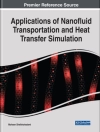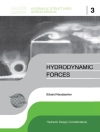This book provides a general overview of the importance of fibre-matrix interfacial bonding characteristics in natural fibre-based composites to obtain optimal material properties for a specific application. Composites materials are prepared by combining fibres and polymers to achieve superior materials properties than those of the individual components. Composite materials are used to produce lightweight components with increased stiffness and strength; their properties can also be tailored for any specific applications. The glass fibre reinforced composites dominate 95% of the thermoplastic and thermoset-based composites. However, the natural fibre reinforced composites can give competition to the glass fibres due to their advantages such as biodegradability, low density, low cost, and good mechanical properties. This book looks into biocomposites and its important aspect of optimization of materials’ performance by fine-tuning the fibre-matrix bonding characteristics. The chapters in the book look at different plant fibres such as kenaf, pineapple leaf, jute, date palm, luffa, cotton, hemp, wood, bamboo, flax, and straw and the different approaches to enhance the fibre-matrix interfacial bonding through physical and/or chemical treatment methods. It demonstrates that the nature of fibre-matrix bonding has a significant effect on the properties such as tensile, flexural, impact, inter-laminar shear strength, moisture absorption, thickness swelling, thermal, chemical, damping, creep, and fatigue. Its content appeals to academics, students, researcher, and scientist who are working in the field to produce biodegradable and recyclable materials in the composite industry.
สารบัญ
Introduction to interfacial bonding characteristics of natural fiber reinforced composites.- New methodologies to improve the interfacial interaction in natural fiber polymer composites.- Morphology of the interfacial interface of the natural fiber reinforced polymer composites.- Spectroscopic analysis of interfacial adhesion in natural fiber polymer composites.- Effect of interfacial bonding characteristics on the tensile properties of kenaf fiber reinforced composites.- Effect of interfacial bonding characteristics of flexural fractured pineapple leaf fiber reinforced composites.- Effect of interfacial bonding characteristics on impact strength of jute fiber reinforced composites.- Effect of interfacial bonding characteristics of inter-laminar shear strength of date palm fiber reinforced composites.- Effect of interfacial bonding characteristics on thermomechanical properties of luffa fiber reinforced composites.- Effect of interfacial bonding characteristics on dynamic mechanical analysis of cotton fiber reinforced composites.- Effect of interfacial bonding characteristics on fatigue behavior of hemp fiber reinforced composites.- Effect of interfacial bonding characteristics on free vibration behavior of wood fiber reinforced composites.- Effect of interfacial bonding characteristics on physical performance of bamboo fiber reinforced composites.- Effect of interfacial bonding characteristics on fire performance of flax fiber reinforced composites.- Effect of interfacial bonding characteristics on electrical properties of natural fiber reinforced polymeric matrix composites.- Effect of interfacial bonding characteristics of chemically treated straw fiber reinforced polymeric matrix composites.- Modeling of interfaces of natural fiber reinforced composites using finite element analysis.- The future challenges of using natural fiber reinforced polymeric matrix composites.
เกี่ยวกับผู้แต่ง
Dr. Senthilkumar Krishnasamy is an Associate Professor in the Department of Mechanical Engineering at PSG Institute of Technology and Applied Research, Coimbatore, Tamil nadu, India. Dr. Krishnasamy graduated with a Bachelor’s degree in Mechanical Engineering from Anna University, Chennai, India, in 2005. He then chose to continue his master’s studies and graduated with a Master’s degree in CAD/CAM from Anna University, Tirunelveli, in 2009. He has obtained his Ph D from the Department of Mechanical Engineering- Kalasalingam University (2016). He had been working in the Department of Mechanical Engineering, Kalasalingam Academy of Research and Education (KARE), India, from 2010 (January) to 2018 (October). He has completed his postdoctoral fellowship at Universiti Putra Malaysia, Serdang, Selangor, Malaysia and King Mongkut’s University of Technology North Bangkok (KMUTNB) under the research topics of “Experimental investigations on mechanical, morphological, thermal and structural properties of kenaf fibre/mat epoxy composites” and “Sisal composites and Fabrication of Eco-friendly hybrid green composites on tribological properties in a medium-scale application, ” respectively. His areas of research interest include the modification and treatment of natural fibres, nanocomposites, 3D printing, and hybrid-reinforced polymer composites. He has published research papers in international journals, book chapters, and conferences in the field of natural fibre composites. He also edits books from different publishers.
Dr. Mohit Hemath Kumar, completed his B.E. (Mechanical Engineering) from Anna University, Chennai, Tamilnadu, India in the year 2012, and M.E. (Thermal Engineering with specialization in Refrigeration and Air Conditioning Engineering) from College of Engineering Guindy Campus, Anna University, Chennai in the year 2014. He completed his Ph.D. from Department of Mechanical Engineering, National Institute of Technology Tiruchirappalli in the year 2019and he finished his Post-Doctoral Research from King Mongkut’s University of Technology North Bangkok, Thailand. Currently he is working as Assistant Professor in Alliance University Bengaluru. He is a life member of Institution of Engineers (India), Powder Metallurgy Association of India (India), Society for Failure Analysis (India), and Science and Technology Research Association (Singapore). In addition, he has published more than 30 articles in high quality international peer reviewed journals, 25+ book Chapters, two books as Editor and also presented research papers at national/international conferences. Till now he has received 14 patents and 18 industrial designs from Indian Intellectual Property Rights. His current research areas include Natural Fibre and Inorganic fillers Based Polymer Nanocomposites, Metal Matrix Composites, and Waste to Innovative Industrial Products Design.
Dr. Jyotishkumar Parameswaranpillai received his Ph.D. in Polymer Science and Technology(Chemistry) from Mahatma Gandhi University, Kerala, India in 2012. He has published more than 160 papers in high-quality international peer-reviewed journals on polymer nanocomposites, polymer blends, and biopolymers, published 100 book chapters, and has edited 40 books. He has received numerous awards and recognitions including the prestigious KMUTNB Best Researcher Award 2019, Alliance University Best Researcher Award 2023, Kerala State Award for the Best Young Scientist 2016, and INSPIRE Faculty Award 2011.
Dr. Sanjay Mavinkere Rangappa, is currently working as a Senior Research Scientist/Associate Professor and also ‘Advisor within the office of the President for University Promotion and Development towards International goals’ at King Mongkut’s University of Technology North Bangkok, Bangkok, Thailand. He received the B.Eng (Mechanical Engineering) in the year 2010, M.Tech (Computational Analysis in Mechanical Sciences) in the year 2013, Ph.D (Faculty of Mechanical Engineering Science) from Visvesvaraya Technological University, Belagavi, India in the year 2018 and Post Doctorate from King Mongkut’s University of Technology North Bangkok, Thailand, in the year 2019. He is a Life Member of Indian Society for Technical Education (ISTE) and an Associate Member of Institute of Engineers (India). He is an Associate Editor of Heliyon Elsevier (Materials Science) and Frontier Materials Journals. Also acting as a Board Member of various international journals in the fields of materials science and composites. He is a reviewer for more than 150 International Journals (for Nature, Elsevier, Springer, Sage, Taylor & Francis, Wiley, American Society for Testing and Materials, American Society of Agricultural and Biological Engineers, IOP, Hindawi, NC State University USA, ASM International, Emerald Group, Bentham Science Publishers, Universiti Putra, Malaysia), also a reviewer for book proposals, and international conferences. In addition, he has published morethan 300 articles in high-quality international peer-reviewed journals indexed by SCI/Scopus, 10 editorial corners, 70 book chapters, one book, 37 books as an Editor (Published by lead publishers such as Elsevier, Springer, Taylor & Francis, Wiley), and also presented research papers at national/international conferences. In 2022, his more than 25 articles got top-cited in various top journals (Journal of Cleaner Production, Carbohydrate Polymers, International Journal of Biological Macromolecules, Journal of Natural Fibers, Journal of Industrial Textiles). He is a lead editor of Several special issues. Based on google scholar, the number of citations amounts to 17000+ and his present H-index is 67 with i10-Index of 240. In addition, 1 UK Design Patent, 1 Thailand Patent and 5 Indian patents are granted. He has delivered keynote and invited talks at various international conferences and workshops. His current research areas include Natural fiber composites, Polymer Composites, and Advanced Material Technology. He has received a ‘Top Peer Reviewer 2019’ award, Global Peer Review Awards, Powered by Publons, Web of Science Group. The KMUTNB selected him for the ‘Outstanding Young Researcher’ Award 2020 and Outstanding Researcher’ Award 2021. He is recognized by Stanford University’s list of the world’s Top 2% of the Most-Cited Scientists in Single Year Citation Impact 2019 and also for the year 2020. In 2021, he is recognized by Stanford University’s list of the world’s Top 2% of the Most-Cited Scientists in Single Year Citation Impact (Top 22nd Rank in Thailand and Top 2nd Rank Under Materials Category in Thailand) and also in Career=long Citation impact. He is listed in ‘Top 100 Scientists’ in Thailand, by AD Scientific Index. (2nd Best Scientist in the Country-Mechanical Engineering, Thailand).
Prof. Dr.-Ing. habil. Suchart Siengchin is President of King Mongkut’s University of Technology North Bangkok. He has received his Dipl.-Ing. in Mechanical Engineering from University of Applied Sciences Giessen/Friedberg, Hessen, Germany in 1999, M.Sc. in Polymer Technology from University of Applied Sciences Aalen, Baden-Wuerttemberg, Germany in 2002, M.Sc. in Material Science at the Erlangen-Nürnberg University, Bayern, Germany in 2004, Doctor of Philosophy in Engineering (Dr.-Ing.) from Institute for Composite Materials, University of Kaiserslautern, Rheinland-Pfalz, Germany in 2008 and Postdoctoral Research from Kaiserslautern University and School of Materials Engineering, Purdue University, USA. In 2016 he received the habilitation at the Chemnitz University in Sachen, Germany. He worked as a Lecturer for Production and Material Engineering Department at The Sirindhorn International Thai-German Graduate School of Engineering (TGGS), KMUTNB. He has been full Professor at KMUTNB and became the President of KMUTNB. He won the Outstanding Researcher Award in 2010, 2012 and 2013 at KMUTNB. His research interests in Polymer Processing and Composite Material. He is Editor-in-Chief: KMUTNB International Journal of Applied Science and Technology and the author of morethan 450 peer-reviewed Journal Articles, 12 editorial corners, 80 book chapters, one book, and 45 books as an Editor. He has participated with presentations in more than 70 International and National Conferences with respect to Materials Science and Engineering topics. He has been recognized and ranked among the world’s top 2% scientists listed by prestigious Stanford University. He has received the National Excellence Researcher Award (Engineering and Research Industry) of the Fiscal Year 2021 by the National Research Council of Thailand.












